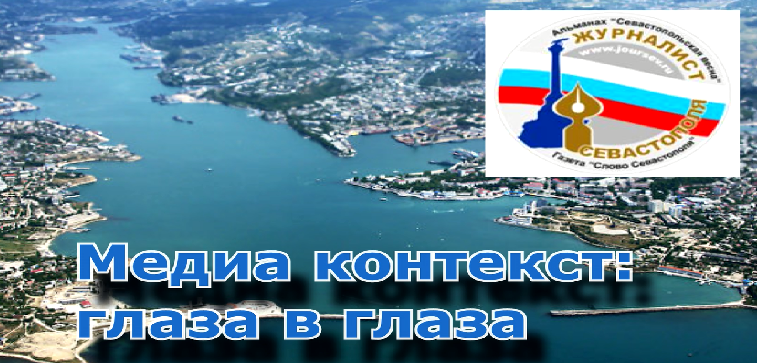Экс-сотрудник дипломатической службы США Деннис Ортблад и профессор Йельского университета Кришен Мета в статье «Три шага к возрождению отношений с Россией», опубликованной в журнале National Interest призвали Соединенные Штаты признать Крым частью России.
«Настало время улучшить отношения между Россией и Западом с помощью политики реализма в отношении Москвы. Нам нужно иметь дело с Россией как она есть, а не так, как мы хотим. И наш враг не Россия. Во всяком случае, наш враг — дезинформация и страх», — пишут Деннис Ортблад и Кришен Мета, недавно побывавшие в России, в том числе и в Крыму в ходе поездки, организованной Центром гражданских инициатив.
По их мнению, для улучшения отношений между Западом и Москвой нужно сделать три шага, один из которых — пересмотр политики санкций и взгляда США на Крым.
«Чтобы откалибровать наши санкции, мы должны признать, что Крым останется русским. Его население всегда было в значительной степени русским. В ходе нашего недавнего визита мы узнали, насколько близко Крым подошел к началу гражданской войны в 2014 году, потенциально предшествующей кровопролитию на Донбассе через несколько недель. Крымчане отождествляют себя с исторической борьбой России против вторжения с Запада. На каждом шагу в Севастополе мы сталкивались с памятниками как огромным потерям во время нацистской оккупации Крыма в 1942-44 годах, так и вторжению англичан, французов и османов в 1854 году. Нам было ясно, что народ Крыма не отказался бы от своей гордости за свою традиционную российскую идентичность, чтобы принять возвращение в Украину.
Настало время улучшить отношения между Россией и Западом с помощью политики реализма в отношении России. В долгосрочной перспективе это принесет пользу, которую не принесут наши санкции. Настало время действовать сейчас», — написали в своей статье бывший сотрудник внешнеполитического ведомства США Деннис Ортблад и бывший партнер Price Waterhouse Coopers Кришен Мета.
3 Steps to Reviving the Russian Relationship
It is time to improve relations between Russia and the West with a policy of realism towards Moscow.
We need to deal with Russia as it is, not as we wish it to be. And our enemy is not Russia. If anything, our enemy is misinformation and fear.
It is this vivid impression that we took away from our recent study tour in Moscow, St Petersburg, and Crimea, organized by the Center for Citizen Initiatives. Members of our delegation went across Russia including Kaliningrad, Krasnodar, Novgorod, Orenburg, Perm, Ufa, and Yekaterinburg.
At a time of tense relations marked not only by the conflict in Ukraine, but also by deep U.S. domestic political rifts over Russia’s role in the 2016 election, we knew our mission made us vulnerable to dismissal as “Putin apologists.” But we took the risk. It was important to search for areas where relations could gradually improve. We felt troubled relations with Russia put our own U.S. security interests at stake.
Our visit brought into focus the wayward directions that our economic sanctions have taken. We saw firsthand the respect that most Russians have for Vladimir Putin, and the manner in which he has stabilized the Russian economy following the tragic freefall of the 1990s. We met with nuclear scientists and arms control negotiators who shared their dismay at the U.S. withdrawal from the INF treaty and the absence of any arms control talks. Many in the country, young and old, felt alienated from the United States as a result of the prevailing Russophobic climate of opinion in the United States.
None of this is good for the United States or for Russia. What then is the answer?
We believe that there are three urgent steps we need to take if we want to protect our children and grandchildren from a calamity that can befall them as a result of accidents or miscalculations by either party.
First step: Welcome the young and engage with them
Those who are under thirty in Russia have known the freedom of travel and access to information in their new economy. It is this younger generation that U.S. policy cannot afford to lose with a sanctions policy that encourages them to believe that the West only seeks to undermine Russia and their futures.
Active student exchanges with the United States and Europe can help counter among the young this drift towards resentment. We found a decline of student and academic exchanges exist throughout Russia. In Irkutsk, university leaders lamented that the formerly active student exchanges with the United States had ceased. In Crimea, at Simferopol University, an academic dean explained that a traditional exchange with a large U.S. university ended because, besides sanctions, the Russophobic climate of opinion in the United States made it politically incorrect.
Following the reciprocal closure of consulates, our Moscow embassy has been unable to meet the increased burden of visa applications. Students and academicians need to wait for months sometimes years for issuance. This needs to be corrected if we do not wish to lose the younger generations of Russians who can be our partners for a better future. The simple diplomacy of reopening consulates on a reciprocal basis would engender confidence and relieve the log jam of visas.
Second Step: Reduce the nuclear threat and revisit the role of NATO
A realistic step to renewing confidence with average Russians would be to revive arms control talks. Russians whom we met expressed deep concern about NATO’s advance to their borders and our unilateral withdrawal from the INF treaty. In the same way as American voters, Russians traditionally feel more secure when active arms control talks and agreements make less likely the triggering of an accidental war.
At a minimum, we need to renew a wary engagement with Russia. We do not live in a safer world when NATO increases by about five times its troops on Russia’s borders, when offensive and defensive weapons are merging, and when a new arms race includes hypersonic missiles, underwater nuclear drones, and long-range battlefield lasers. It is time to reassess within NATO how members evaluate the Russia threat to restore a consistent stance. Severe rifts have opened over members’ perceptions—whether involving Turkey’s purchase of Russian arms or Germany’s reliance on a new gas pipeline from Russia through the Baltic Sea.
Third Step: Revisit the sanctions policy and our view of Crimea
During the Cold War, U.S. policy used sanctions to move adversaries toward compromise, not surrender. For example, in the 1980s Secretary George Schultz declared that the sanctions against Poland were aimed at the regime leadership and not at the nation’s people. Schultz laid out a clear roadmap for lifting sanctions if Poland released political prisoners. This formula worked; eventually, the sanctions were lifted. No such message or exit pathway exists for the economic sanctions against Russia.
Dennis Ortblad is a former career U.S. foreign service officer, and Krishen Mehta is a former partner with PricewaterhouseCoopers.
Image: Reuters
ОТ РЕДАКЦИИ: Необходимо отметить: авторы этой статьи ранее побывали в Крыму и Севастополе. Организатором встреч американских гостей с общественностью стало Севастопольское региональное отделение Союза журналистов России, которое возглавляет Сергей Горбачев.












